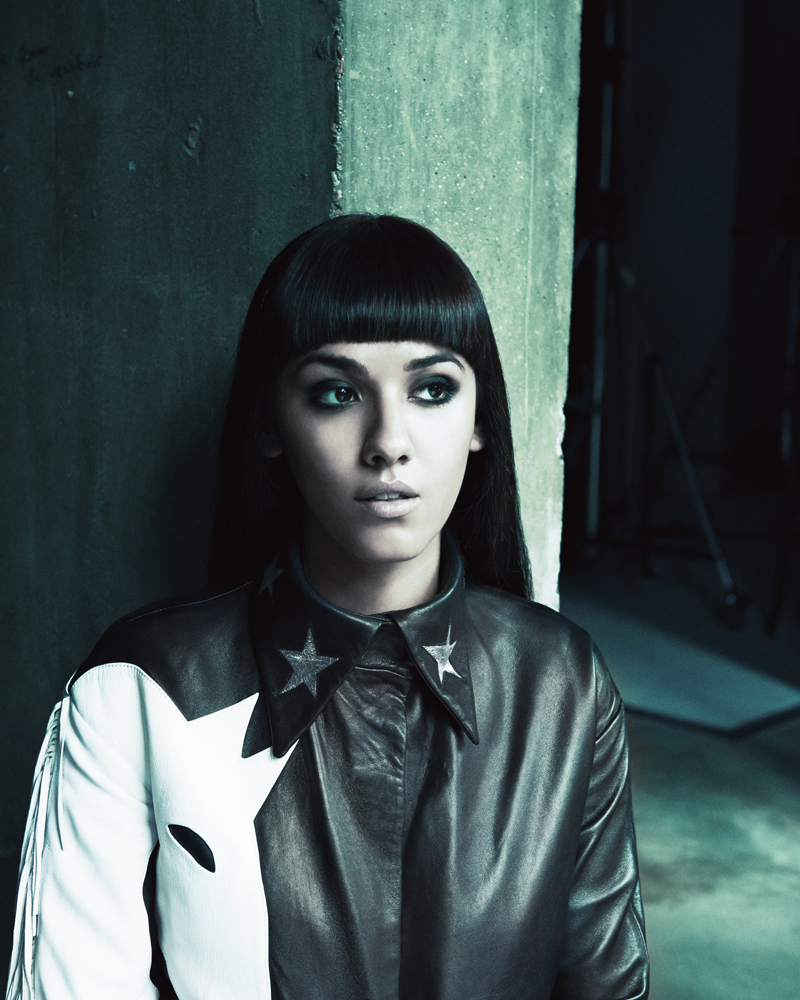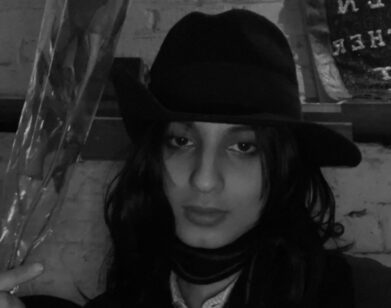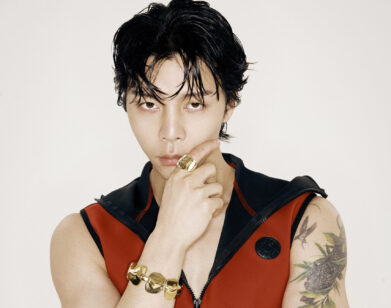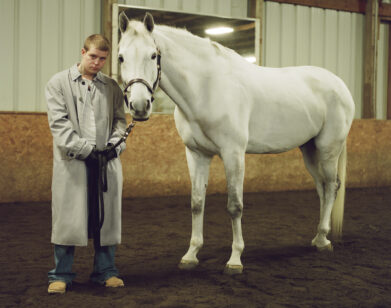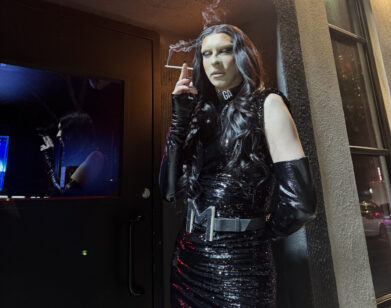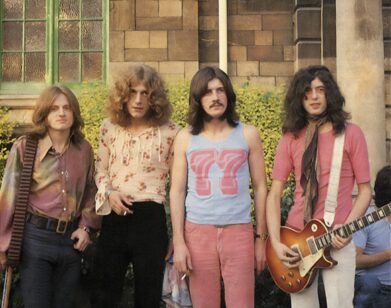Charlotte OC
“I’ve always had this love for witches,” recalls rising U.K. singer-songwriter Charlotte O’Connor, who performs as Charlotte OC. “Growing up, I’d stand in the driveway casting spells on people walking by.” That penchant to hex continues via Charlotte OC’s mystical debut EP, Strange. On “Hangover,” her sirenic vocals update Diana Ross’s post-orgasmic disco classic “Love Hangover” for our Lena Dunham present. “I’m really into the intensity, and hilarity, of love,” says O’Connor, 23. “It’s the only acceptable opportunity to become a mentalist witch, which I do very well.”
Charlotte OC’s emotional musings compare easily to the Lanas and Lordes: all imbue somewhat voyeuristic, ultimately cautionary glimpses of their demons into eerie, au courant pop sonics. What sets O’Connor apart is that she hybrids her goth metaphysics with deep soul. “R&B was always my passion,” she says, “so soul is at the core of everything I do.” Growing up in outer Manchester suburbia, the daughter of a Malawi-Indian mother and Irish father (a guitarist in the ’60s combo the Merseybeats) experienced major epiphanies from Alicia Keys’s 2001 breakthrough Songs in A Minor. “My first concert was seeing her at the Manchester Apollo,” O’Connor says. “She didn’t give anything away, which made you just want to know her more.” And just like Keys, O’Connor signed to major label Columbia as a teenaged neophyte on the strength of a promising demo and, also like Keys, was later inexplicably dropped. “Columbia rang me up one day and said, ‘We really don’t know what to do with you,’ ” O’Connor says. “It was a wake-up call: I had to become myself as an artist.”
Taking two years sabbatical, she “washed old biddies’ hair” at her mum’s beauty salon and explored Berlin’s decadent techno underground before moving to London: “I partied lots, kissed a bunch of boys, got my heart broken, and started writing songs again.” She rediscovered her primal influences: Portishead’s sublime electronica, vocal iconoclasts Freddie Mercury and Kate Bush, art-school rockers Talking Heads—even misfit auteur Tim Burton. “Edward Scissorhands depicted colorful pop art with this darkness,” O’Connor says. “That’s how I heard my music.” Likewise, preparing a solo album for 2015, she finds inspiration amid the vagabond folk of Leonard Cohen and Joni Mitchell, favorites of her parents played throughout her youth. “I don’t want the stamp of ‘2014 girl with electronic beats,’ ” O’Connor declares. “I want everything more live, organic, and timeless—a record you can’t argue with. I’m learning, in my own little way.”

